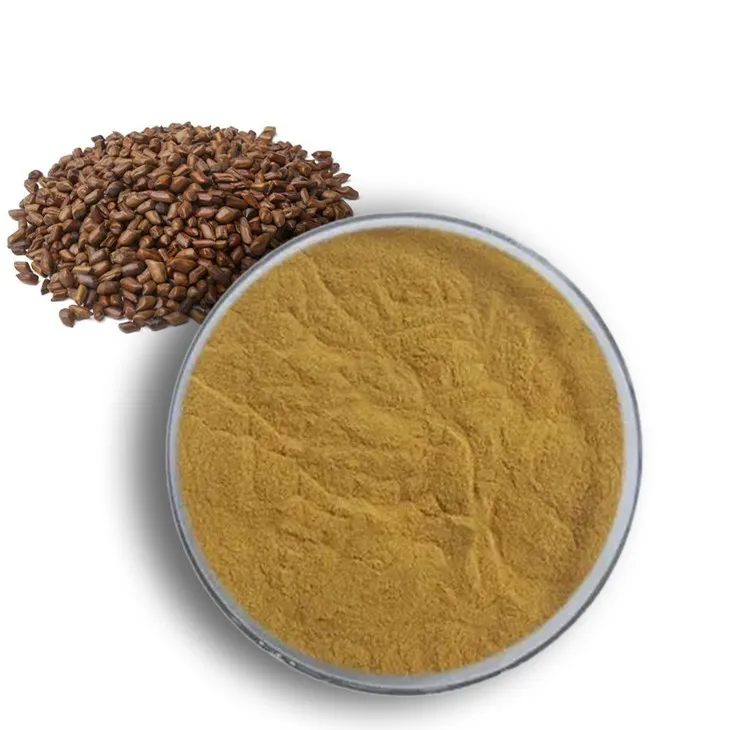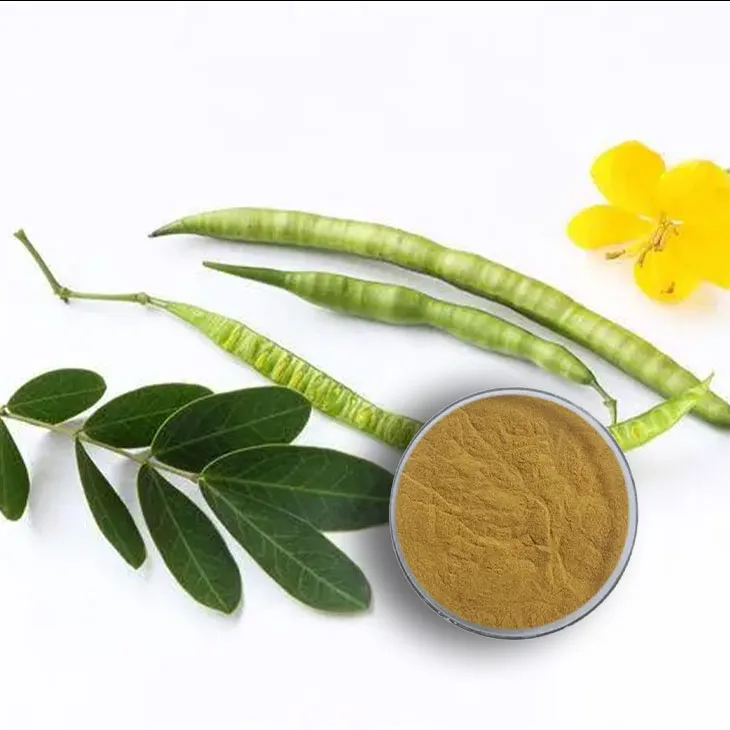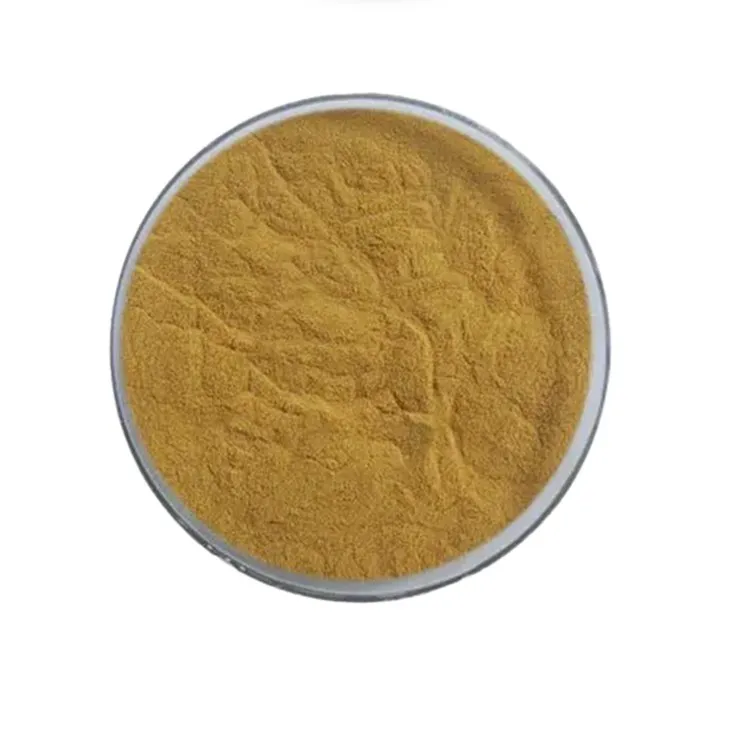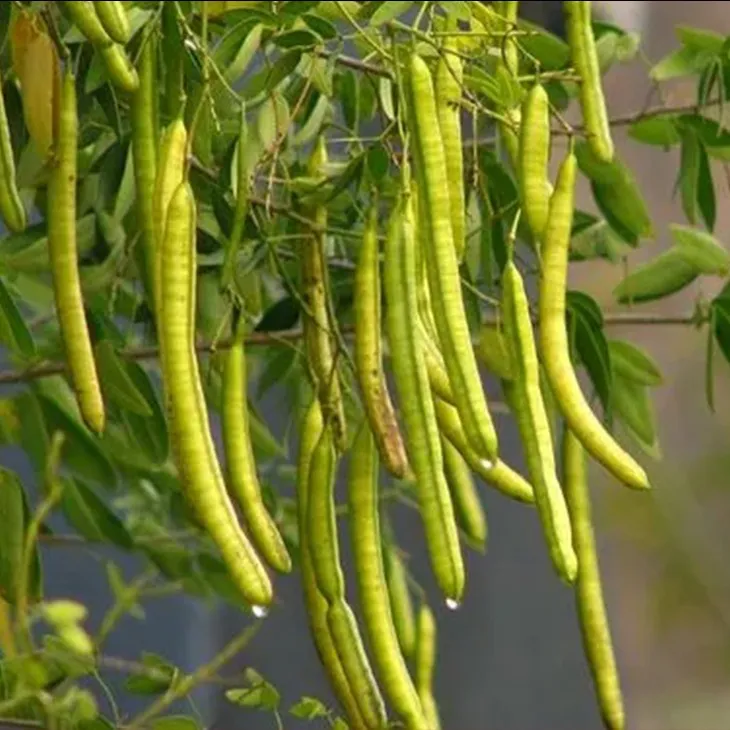- 0086-571-85302990
- sales@greenskybio.com
Best Types of Cassia Seed Extract: A Guide to Selecting the Best Cassia Seed Extract.
2024-11-11

1. Introduction to Cassia Seed Extract
Cassia seed, also known as Senna obtusifolia or Chinese senna, has been used in traditional medicine for centuries. Cassia Seed Extract is derived from these seeds and is rich in various bioactive compounds. It has gained popularity in recent years due to its potential health benefits, which include antioxidant, anti - inflammatory, and laxative properties. As the demand for natural health products increases, the market for Cassia Seed Extract has expanded, offering different types and qualities of the extract.

2. Factors Affecting the Quality of Cassia Seed Extract
2.1 Purity
Purity is a crucial factor when choosing Cassia seed extract. High - purity extract means that it contains a minimal amount of contaminants such as heavy metals, pesticides, and other impurities. Contaminated extracts can pose health risks and may not provide the expected therapeutic effects. To ensure purity, it is important to look for extracts that have been tested by reliable third - party laboratories. These tests should include analysis for heavy metals like lead, mercury, and arsenic, as well as pesticide residues. Additionally, the extraction process should be carried out in a clean and controlled environment to avoid contamination during production.
2.2 Potency
The potency of Cassia seed extract refers to the concentration and effectiveness of its active compounds. Different extraction methods can result in extracts with varying potencies. For example, some extraction techniques may be more efficient in extracting the key bioactive components such as anthraquinones, which are responsible for the laxative effect of Cassia seed. A more potent extract may require a lower dosage to achieve the desired health benefits. However, it is also important to note that excessive potency can lead to potential side effects. Therefore, it is necessary to find a balance and choose an extract with an appropriate potency level for the intended use.
2.3 Origin
The origin of Cassia seeds used for extraction can significantly impact the quality of the extract. Cassia seeds are grown in different regions around the world, and factors such as soil quality, climate, and cultivation practices can influence the chemical composition of the seeds. For instance, seeds grown in regions with rich soil and a suitable climate may contain higher levels of beneficial compounds. Additionally, some regions may have stricter regulations on agricultural practices, ensuring better - quality raw materials for extraction. When selecting Cassia seed extract, it is advisable to choose products sourced from reputable regions known for their high - quality Cassia seed production.

3. Different Forms of Cassia Seed Extract
3.1 Powdered Extract
Powdered Cassia seed extract is a common form available in the market. It is convenient for various applications, such as formulating dietary supplements or herbal blends. One advantage of the powdered form is its ease of handling and storage. It can be easily incorporated into capsules, tablets, or mixed with other powdered ingredients. However, it is important to ensure that the powder is of high quality and has a consistent particle size. A fine and uniform powder will dissolve more easily and ensure better bioavailability. When purchasing powdered Cassia seed extract, check for any signs of clumping or moisture absorption, as these can indicate poor quality or improper storage.
3.2 Liquid Extract
Liquid Cassia seed extract offers some unique benefits. It is often more quickly absorbed by the body compared to the powdered form, which can lead to faster onset of action. Liquid extracts are also easier to dose accurately, especially for those who have difficulty swallowing pills. However, liquid extracts may require proper preservation to prevent spoilage. They are usually stored in dark bottles to protect from light and may contain preservatives to maintain their stability. Some liquid extracts may also have a bitter taste, which can be masked by adding flavorings or diluting with a suitable liquid.
3.3 Standardized Extract
Standardized Cassia seed extract is formulated to contain a specific and consistent amount of active compounds. This type of extract provides more predictability in terms of its therapeutic effects. For example, a standardized extract may be guaranteed to contain a certain percentage of anthraquinones. This is beneficial for both consumers and manufacturers. Consumers can be more confident in the potency and effectiveness of the product, while manufacturers can ensure the quality and consistency of their formulations. However, standardized extracts may be more expensive due to the additional quality control measures involved in their production.

4. Applications of Cassia Seed Extract
4.1 Dietary Supplements
Cassia seed extract is often used in dietary supplements for its potential health - promoting properties. It can be included in formulations aimed at improving digestion, due to its laxative effect. Additionally, its antioxidant properties may contribute to overall health and well - being by protecting the body against oxidative stress. When choosing Cassia seed extract for dietary supplements, it is important to consider factors such as the intended use, the recommended dosage, and any potential interactions with other supplements or medications. For example, Cassia seed extract may interact with certain medications that affect the digestive system, so it is advisable to consult a healthcare professional before use.
4.2 Herbal Remedies
In traditional herbal medicine, Cassia seed has been used as an herbal remedy for various ailments. It has been used to treat constipation, eye problems, and high blood pressure. When using Cassia seed extract as an herbal remedy, it is essential to follow traditional knowledge and practices. However, it is also important to note that while herbal remedies have a long history of use, they are not always scientifically proven to be effective. Therefore, it is crucial to approach herbal remedies with caution and use them under the guidance of a trained herbalist or healthcare provider.

5. How to Select the Best Cassia Seed Extract
When selecting the best Cassia seed extract for your needs, consider the following steps:
- Research the Manufacturer: Look for a reputable manufacturer with a good track record in producing high - quality herbal extracts. Check for customer reviews, certifications, and any awards or recognition the company has received.
- Check for Purity and Quality Testing: Ensure that the extract has been tested for purity by a reliable third - party laboratory. Look for information on heavy metal and pesticide testing, as well as the overall quality of the extraction process.
- Consider the Potency and Form: Determine the appropriate potency level for your intended use, whether it is for dietary supplements or herbal remedies. Also, consider which form (powdered, liquid, or standardized) would be most convenient and effective for you.
- Verify the Origin: Find out where the Cassia seeds used for extraction are sourced from. Choose products sourced from regions known for high - quality Cassia seed production.
- Consult a Professional: If you are unsure about which Cassia seed extract to choose, or if you have any underlying health conditions or are taking medications, consult a healthcare professional or a trained herbalist.
6. Conclusion
Cassia seed extract offers a range of potential health benefits, but choosing the best type requires careful consideration of factors such as purity, potency, origin, and form. By understanding these factors and following the guidelines for selection, consumers can make more informed decisions when choosing Cassia seed extract for their dietary supplement or herbal remedy needs. It is important to remember that while Cassia seed extract has a long history of use in traditional medicine, it should be used responsibly and under the appropriate guidance.
FAQ:
What are the main factors to consider when choosing Cassia seed extract?
When choosing Cassia seed extract, the main factors to consider include purity, potency, and origin. Purity is crucial as it determines the quality and absence of contaminants. Potency affects its effectiveness in various applications, such as in dietary supplements or herbal remedies. The origin of the Cassia seeds can also influence the properties of the extract, as different regions may have different growing conditions and qualities of the raw material.
How can one determine the purity of Cassia seed extract?
Determining the purity of Cassia seed extract can be done through several methods. Laboratory analysis is often the most accurate way, which can detect the presence of impurities, such as heavy metals, pesticides, or other foreign substances. Reputable suppliers may also provide certificates of analysis that detail the purity of their products. Additionally, looking at the manufacturing process and the reputation of the brand can give an indication of the likely purity of the extract.
What is the significance of the potency of Cassia seed extract?
The potency of Cassia seed extract is significant because it directly relates to its effectiveness in different applications. In dietary supplements, a more potent extract may provide more pronounced health benefits. For herbal remedies, the potency can determine how well it treats certain conditions. A higher - potency extract may be required for more severe or chronic ailments, while a lower - potency one may be sufficient for milder cases or preventive use.
How does the origin of Cassia seeds affect the extract?
The origin of Cassia seeds can have a notable impact on the extract. Different regions have varying climates, soil types, and agricultural practices. These factors can influence the chemical composition of the seeds. For example, Cassia seeds grown in a particular region with ideal soil and climate conditions may have a higher concentration of beneficial compounds. This, in turn, can result in an extract with different properties, such as enhanced potency or a unique profile of active ingredients.
Can Cassia seed extract be used in both dietary supplements and herbal remedies?
Yes, Cassia seed extract can be used in both dietary supplements and herbal remedies. In dietary supplements, it can be formulated to provide certain health benefits, such as improving digestion or eye health. In herbal remedies, it has been traditionally used to address various conditions, like constipation or high blood pressure. However, it is important to note that proper dosage and usage instructions should be followed, and in some cases, consultation with a healthcare professional is advisable.
Related literature
- Title: Analysis of Cassia Seed Extract: Quality and Efficacy"
- Title: "The Origin and Properties of Cassia Seeds: Implications for Extract Quality"
- Title: "Purity and Potency in Herbal Extracts: A Case Study of Cassia Seed Extract"
- ▶ Hesperidin
- ▶ citrus bioflavonoids
- ▶ plant extract
- ▶ lycopene
- ▶ Diosmin
- ▶ Grape seed extract
- ▶ Sea buckthorn Juice Powder
- ▶ Beetroot powder
- ▶ Hops Extract
- ▶ Artichoke Extract
- ▶ Reishi mushroom extract
- ▶ Astaxanthin
- ▶ Green Tea Extract
- ▶ Curcumin Extract
- ▶ Horse Chestnut Extract
- ▶ Other Problems
- ▶ Boswellia Serrata Extract
- ▶ Resveratrol Extract
- ▶ Marigold Extract
- ▶ Grape Leaf Extract
- ▶ blog3
-
High purity olive leaf extract
2024-11-11
-
Lavender oil extraction method
2024-11-11
-
100% organic virgin sea buckthorn fruit oil
2024-11-11
-
Lotus leaf extract powder factory in China
2024-11-11
-
China aged garlic extract supplier
2024-11-11
-
Deer antler extract powder manufacturer
2024-11-11
-
Saw palmetto extract vs whole herb
2024-11-11
-
Ginger Extract
2024-11-11
-
Carrageenan Extract Powder
2024-11-11
-
Lemon Juice Powder
2024-11-11
-
Fenugreek Extract Powder
2024-11-11
-
Buckthorn bark extract
2024-11-11
-
Artichoke Extract
2024-11-11
-
Nettle Root Extract
2024-11-11
-
Motherwort Extract
2024-11-11
-
Artichoke Leaf Extract
2024-11-11
-
Saponin Extract
2024-11-11





















